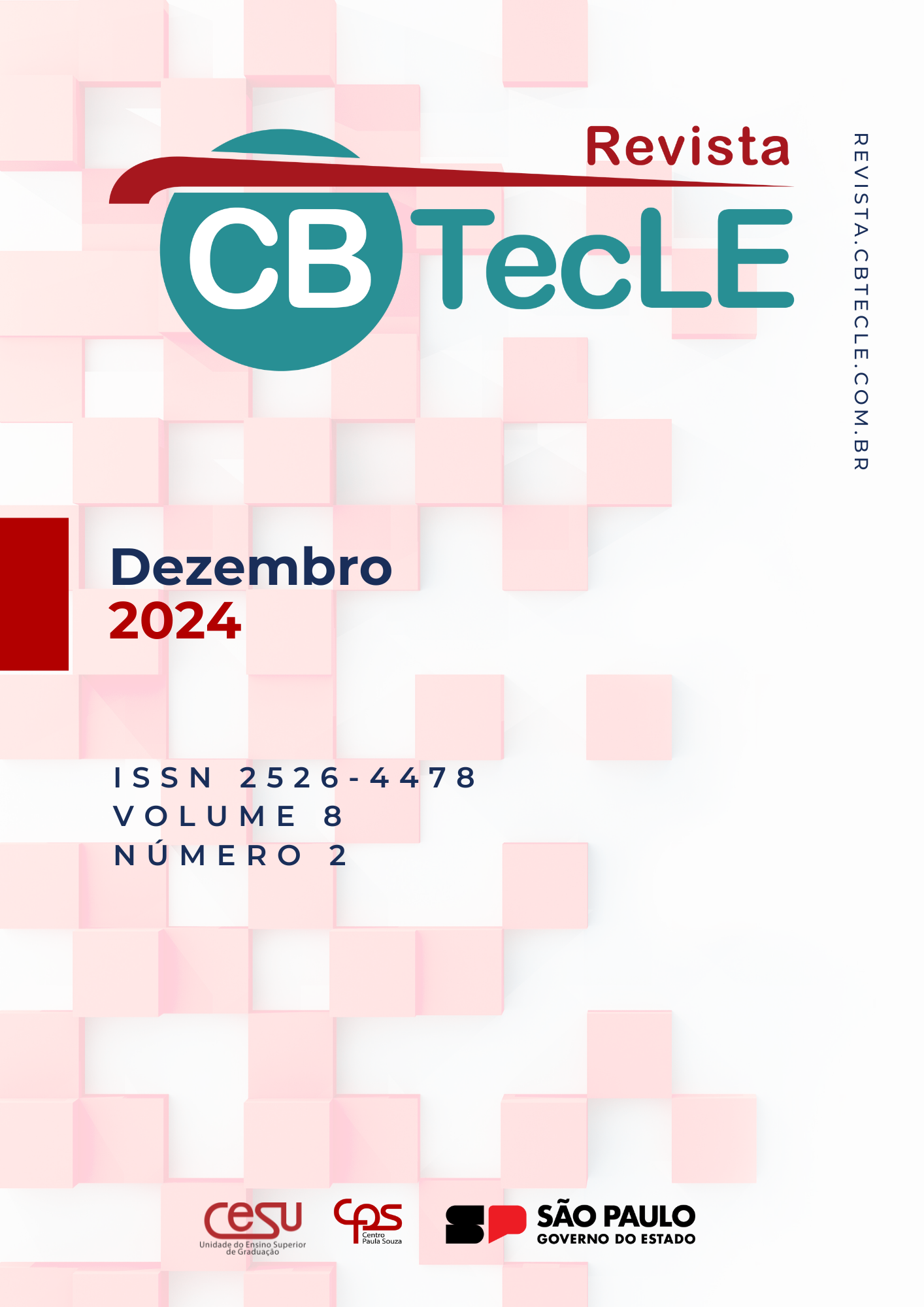TÉCNICAS DE AUTOESTUDO NA LÍNGUA INGLESA: ESTRATÉGIAS PARA O FORTALECIMENTO DA APRENDIZAGEM
Keywords:
Autoestudo, Língua Inglesa, Listening, Vídeos curtosAbstract
The present work aimed to explore effective techniques of self-study in the English language, aiming to strengthen students' learning. Learning a new language, especially through self-study, can present unique challenges. However, by adopting specific strategies and implementing proven techniques, students can maximize their learning progress and achieve their English language proficiency goals. The main strategies are short videos and listening. In addition, it also addresses the use of brief tips, such as: setting goals, organizing study time, regular practice of the new language, object of study and continuous evaluation of progress. It is considered, therefore, that by putting into practice such strategies consistently, students can strengthen their learning in the English language.
References
MENDELSOHN, D. J. "Teaching Listening". Annual Review of Applied Linguistics, v. 18, p. 91-101, 1998.
DONAGHY, K. How can film help you teach or learn English. British Council, v. 15, p. 40, 2014.
ROST, M.; CANDLIN, C. N. Listening in language learning. 1ª ed. Routledge, 2014.
SANTOS, D. Ensino de Língua Inglesa: foco em estratégias. 1ª ed. Barueri. Editora Disal, 2012.
VILAÇA, M. L. C. Classificação de estratégias de aprendizagem de línguas: critérios, abordagens e contrapontos. UNIGRANRIO, v.10, n. 36, 2011.
KAVIER, R. P.; LIMA, M. C. T. Teaching in a clever way. 1ª ed. Florianópolis: Editora da UFSC, 2016.
BRINTON, D. M. The Use of Media in Language Teaching. In: CELSE-MURCIA, 2013. MARIANNE, D.Teaching English as a second language. 3 ed. USA: Heinle, 2001.
HARMER, J. How to Teach English: An Introduction to the Practice of EnglishLanguage Teaching. 1ª ed. Zed. Harlow: Pearson Longman, 2009.
LEWIS, M. Classroom Management. In: RICHARDS, J.C.; RENANDYA, W.A. Methodology in Language Teaching. Cambridge: Cambridge University Press, 2012, p.40-48.
SCHUTZ, R. Motivação e desmotivação no aprendizado de línguas. 1ª ed. English made in Brazil. 2015.
RICHARDS, J. C.; ROGERS, T. S. Approaches and Methods in Language Teaching. 2 ed. New York: Cambridge: CUP, p. 18-19-22-25-103-167, 2011.
PRABHU, N. S. There's no best method - why. Tesol Quartely, v. 24, n. 2, p. 161-176, 2010.
LOUREIRO, A. P. V. Aprender inglês como segunda língua: a importância do domínio de outras linguas num mundo globalizado. 1ª ed. Universidade Lusófona de Humanidades e Tecnologias - ULHT. Lisboa, 2013.
MARQUES, M. O. A escola no computador: linguagens rearticuladas, educação outra. 1ª ed. Rio Grande do Sul: Unijuí, 2017.
CEBECI, Z.; TEKDAL, M. Using Podcasts as Audio Learning Objects. Interdisciplinary.
Journal of Knowledge and Leaming Objects, v. 2, p. 47-57, 2016.
REIS, S. C.; GOMES, F. A. Podcasts para o ensino de Língua Inglesa: análise e prática de Letramento Digital. Calidoscópio, v. 12, n. 3, p. 367-379, 2014.
SAIDELLES et al. A utilização do Podcast como uma ferramenta inovadora no contexto educacional. Redin - Revista Educacional Interdisciplinar. 23° Seminário Internacional e Educação, Tecnologia e Sociedade, 2018.



